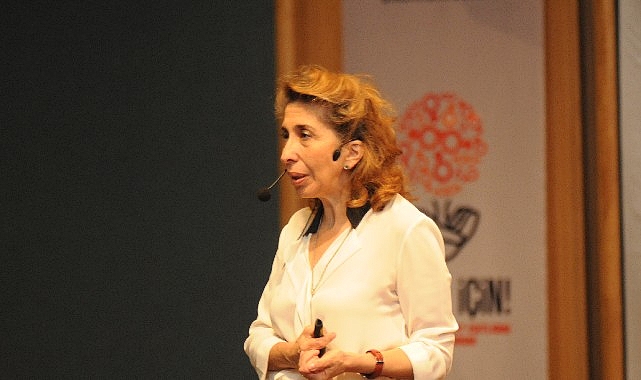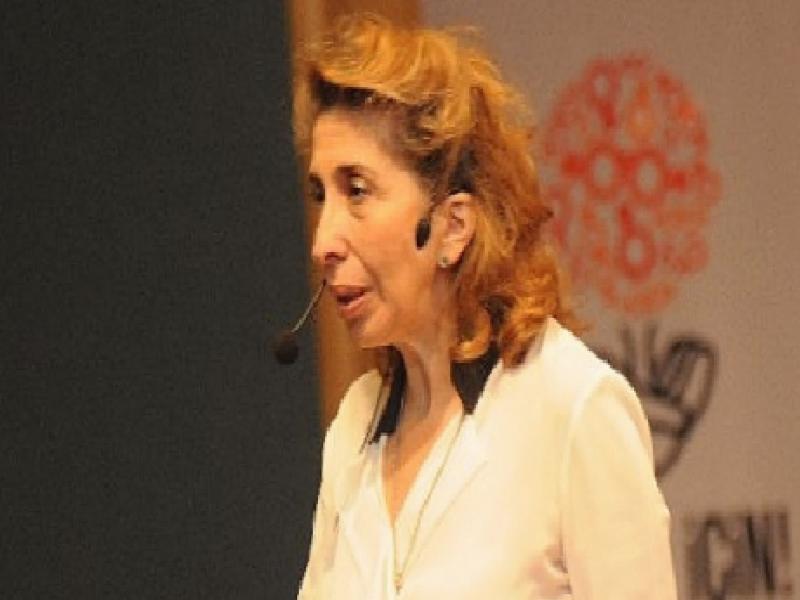
CISU Platform announced Turkey’s sexual and reproductive health (SRH) report card.
The Sexual and Reproductive Health Rights (CISU) Platform revealed the point Turkey has reached in the field of sexual and reproductive health in the last year. The difficulties in accessing menstrual and family planning products due to rising prices, the struggle for the HPV vaccine to be included in the national vaccination calendar, the increase in the HIV epidemic and the deprivation of health services of LGBTI+s due to the fear of stigmatization were among the events that marked the year 2022.
Nurcan Müftüoğlu, General Coordinator of the Family Health and Planning Foundation of Turkey (TAPV), speaking on behalf of the CISU Platform, stated that sexual and reproductive health (SRH) rights are among human rights and said, “These services provided within the scope of preventive health services, It supports the well-being of the community, makes public health possible.Deficiencies and neglects that may occur in this area, in addition to the violation of fundamental human rights, cause significant health risks and costs, social problems and adversely affect the quality of life for generations.As CISU, in 2023, sexual and reproductive health services and We will continue to work for a better picture in accessing their rights.”
The findings of the CISU Platform in Turkey’s 2022 sexual and reproductive health report are as follows:
- Hygienic pads and tampons and unwanted contraceptive products were among the products hit the hardest by the increase in inflation and high taxes in Turkey. The fact that the prices were inaccessible to the citizens negatively affected the access to sexual and reproductive health rights.
- The tax burden on sanitary pads, which is in the highest tax category with a tax rate of 18 percent, has been reduced to 8 percent as of April 1. The high prices of these products, which are basic necessities, led to a deepening inequality in access to these products, especially by poor and refugee women. Women and girls, who could not easily buy hygiene products, could not go to school during their menstrual periods, and they became afraid to go out for their daily work. While women started to turn to products such as washable cups or menstrual cycle underwear, there was also a return to the use of traditional cloth. Young university women, who could not access sanitary pads, formed solidarity groups among themselves with the application of suspended pads.
- While countries such as Kazakhstan, Myanmar and Vietnam announced that they would include the HPV vaccine recommended by the World Health Organization for girls aged 9-14 against cervical cancer, on their national calendars, civil society pressures continued throughout the year to include the HPV vaccine in Turkey’s national vaccination calendar. Health Minister Fahrettin Koca announced that HPV will be included in the national vaccination calendar at the end of November, but it remains unclear to which age groups it will be applied.
- 95 percent of women do not know about cervical cancer screening that is done every year. Cancers related to HPV are responsible for 1% of male cancers and 5-10% of female cancers. Cancer incidence in Turkey is above the world incidence. CISU Platform emphasized that HPV tests and screenings are not sufficient.
- The problems and rights violations faced by LGBTI+s and trans people in sexual health services continued to increase during the pandemic. Existing laws still force trans people who want to enter the process of gender reconciliation to give up their biological reproductive functions, and access to hormonal drugs is restricted in this process for various reasons.
- Turkey is among the Eastern European and Central Asian countries where the HIV epidemic has the fastest rate of increase in the world. Turkey is the only country where HIV infection has increased by 460 percent in the last 10 years. While sexuality is still seen as a ‘shameful subject’ in Turkey, contraception methods and scientific developments are not disclosed to the public. On the other hand, false prejudices against HIV and those living with HIV negatively affect field studies. Differences of opinion between local governments and central governments should not be mentioned together with this ‘shameful issue’ – therefore, it is necessary to increase the number and capacity of GDTMs (Voluntary Counseling and Testing Centers), which are units that provide consultancy and anonymous testing services under local governments, with the reflex to avoid being stigmatized. importance is ignored.
- LGBTI+s were targeted with hate rallies throughout 2022. The Situation Analysis Report, prepared by the CISU Platform, reveals that LGBTI+s prefer to hide their sexual orientation and gender identity while receiving healthcare services due to the fear of discrimination and stigma. In the report, it was pointed out that LGBTI+s, regardless of the state or private institution, postpone receiving health care services or seek alternative ways just because of this fear.
- In the information note on the Effects of Violence on Women’s Health prepared by the CISU Platform, it was pointed out that women could not reach their rights to health due to lack of information and obstacles in the legal system. In the document, it was emphasized that women in Turkey are exposed to violence due to socio-economic and cultural factors, but this situation is often not reflected in the judicial processes due to the pressure of the society or the threat of the perpetrator, or it is covered up even though there are criminal sanctions.
- Within the scope of preventive health services, in primary care; Access to family planning services that should be accessible in Family Health Centers (FHCs), Wellness Centers (SHMs) and Community Health Centers (TSMs) is decreasing. Lack of access to tools to regulate fertility causes health problems for women and makes safe motherhood risky.
Source: (BYZHA) – Beyaz News Agency

